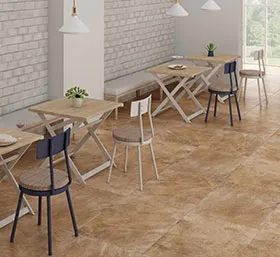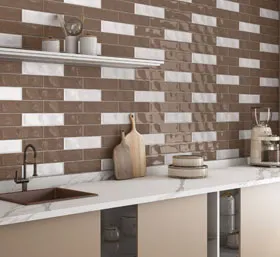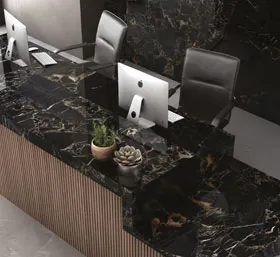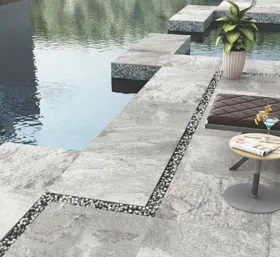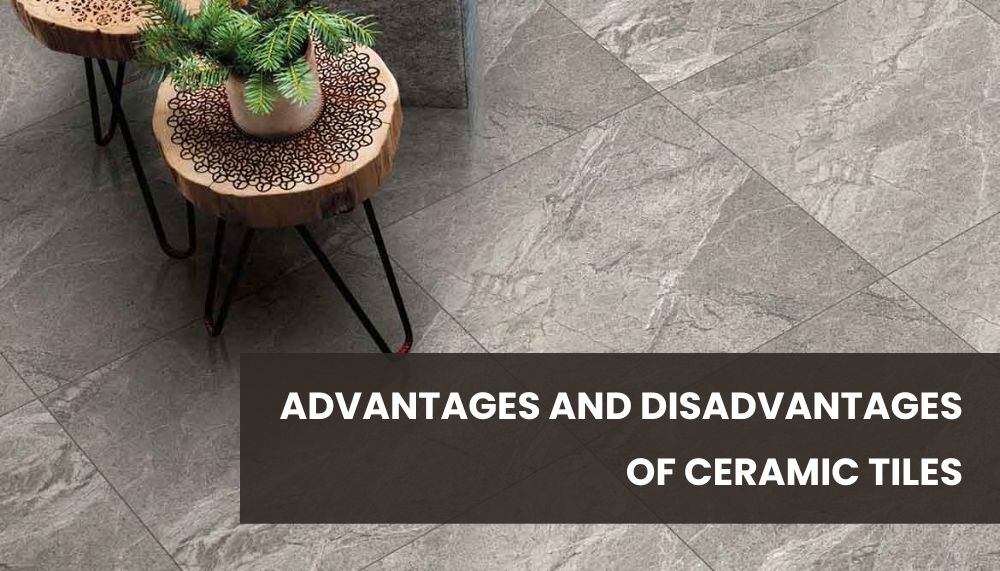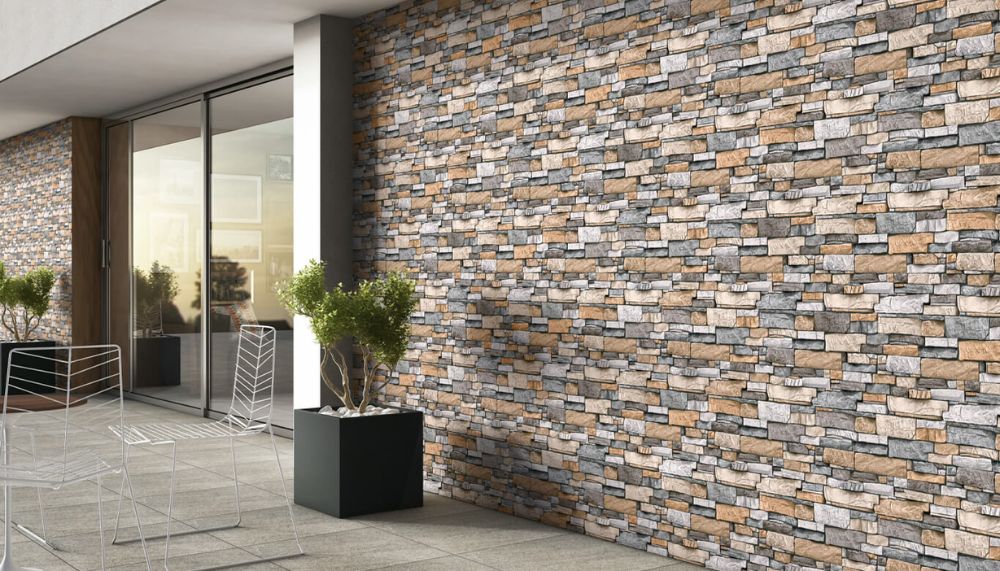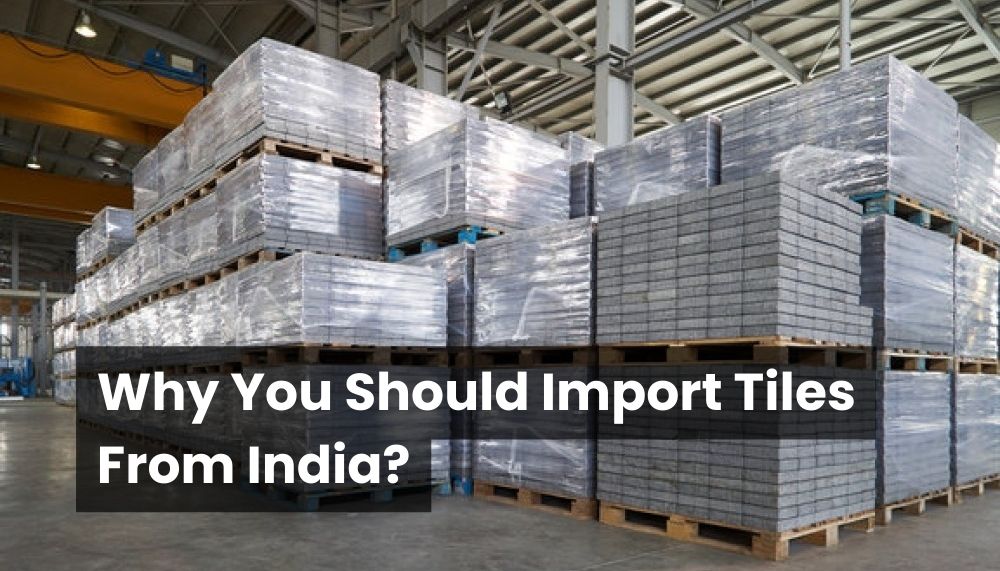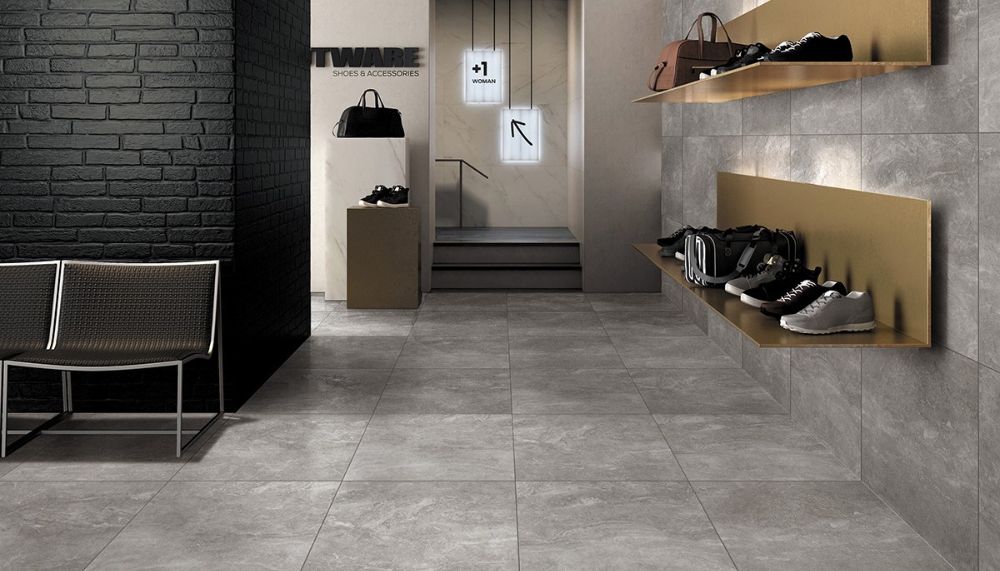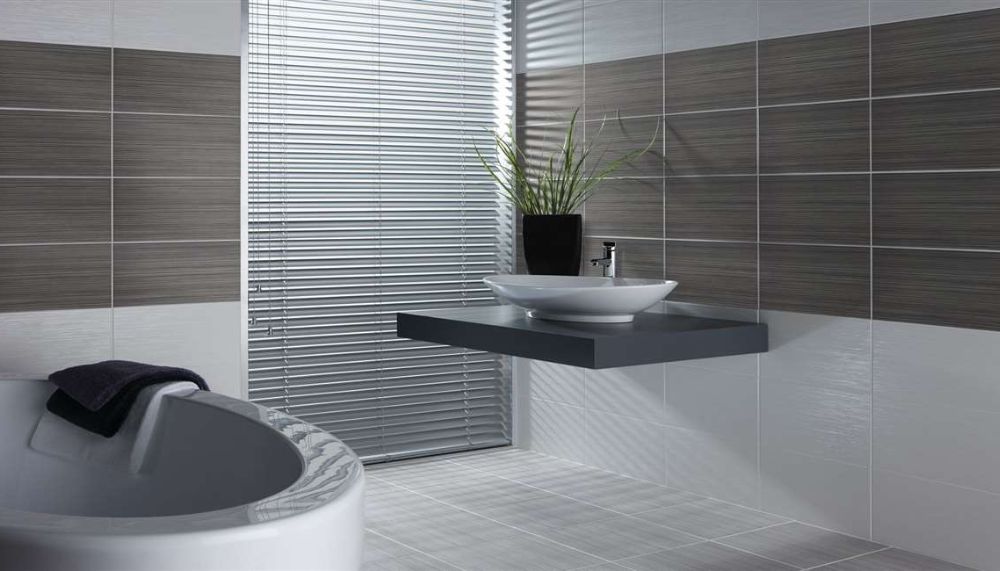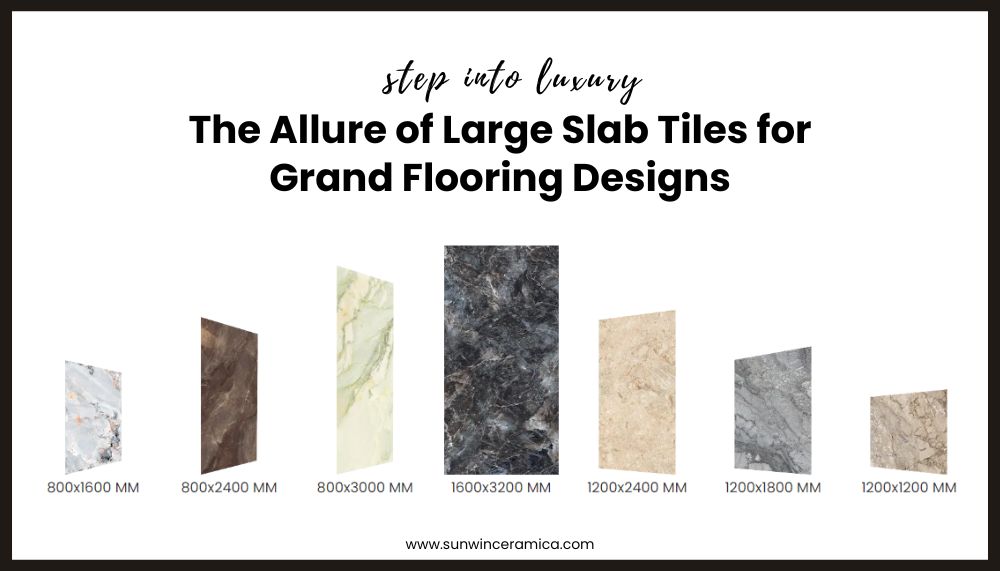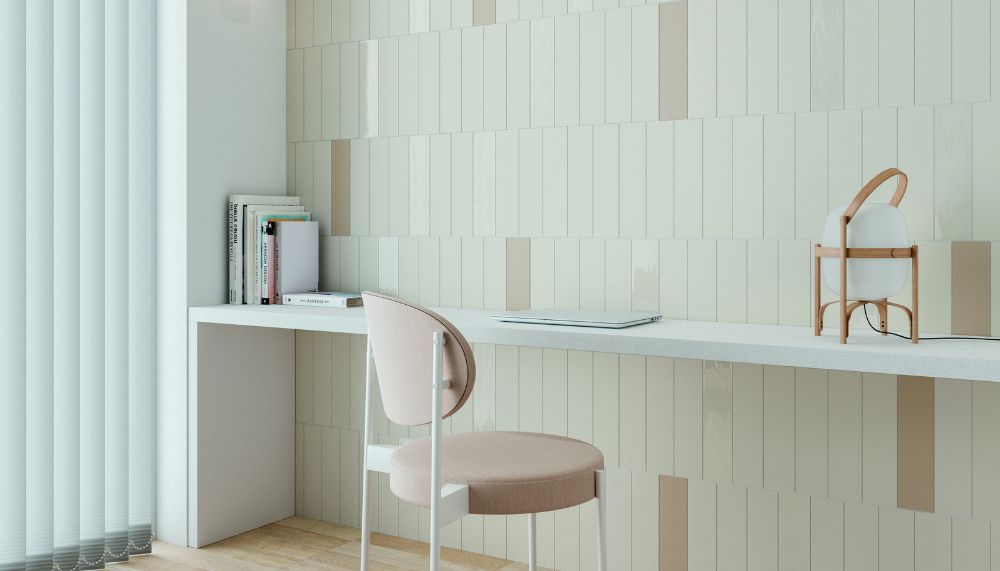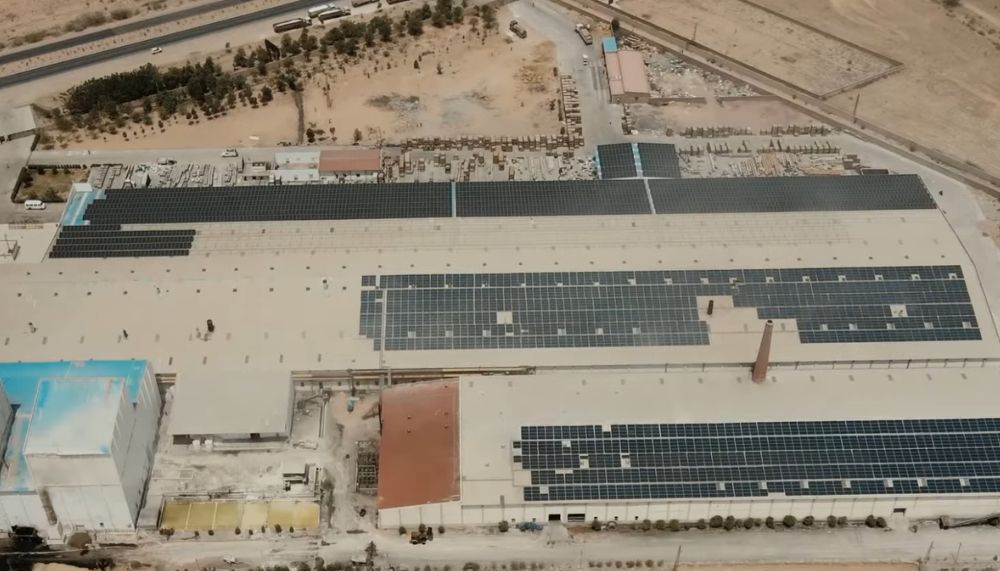
Our world is facing critical environmental issues such as global warming, air pollution, water scarcity, and many more. A comprehensive survey by a USA agency reported that manufacturing industries were nearly 2% stakeholders among other industries that contribute to pollution and increase of carbon footprint.
Thus, manufacturing industries are starting to incorporate and promote sustainable practices in manufacturing to reduce the carbon footprint and create a greener world. This is one of the revolutionary steps and tile manufacturing industries being one of the progressive and major businesses across the world adopt these practices very fast.
Let's understand how tile manufacturing industries put a step forward for an eco-friendly future.
Key Steps Toward Sustainability In Tile Industry
1. Recycled Material In Production
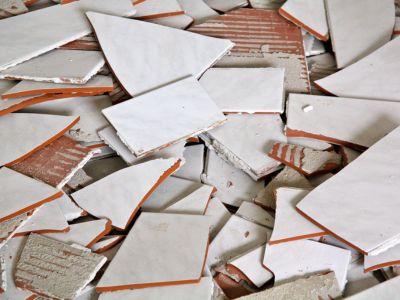
Tiles made from recycled materials are a major trend in sustainability. Manufacturers across the world are now using recycled material to craft high-quality tiles in a sustainable way. For example, companies like Fireclay Tile use over 60% recycled content in their tiles. It includes post-consumer glass and ceramic waste.
They divert the waste from landfills and repurpose it into new and durable tiles. That's how they reduce the need for virgin materials and minimize environmental impact. These recycled-content tiles are just as beautiful and durable as their non-recycled counterparts. It provides a green alternative without compromising on quality or aesthetics.
2. Sourcing Local Material
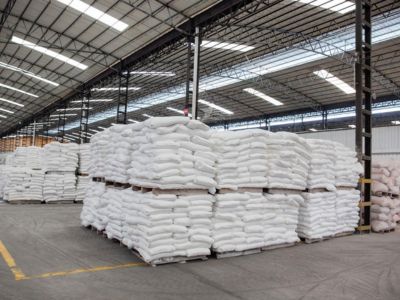
Sourcing local materials is another important sustainability initiative. Manufacturers use locally available raw materials to reduce the carbon footprint associated with transportation. For example, companies in Italy often source natural clays from nearby quarries for their porcelain tiles. This step comprehensively reduces the need for long-distance shipping.
This not only cuts down on fuel consumption and greenhouse gas emissions but also supports local economies. Moreover, local sourcing often means better oversight and control over environmental practices. That's how it ensures more sustainable mining and harvesting methods.
3. Energy Efficient Manufacturing Process
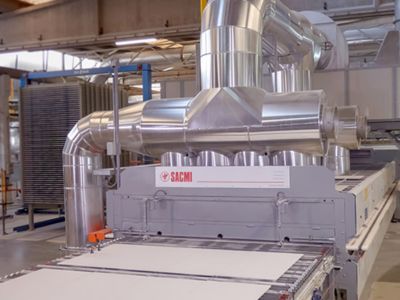
The tile industry is embracing energy-efficient manufacturing techniques to reduce energy consumption and greenhouse gas emissions. Technologies like kilns with advanced heat recovery systems allow manufacturers to recycle heat within the production process. The process saves significant amounts of energy.
For example, companies such as Ceramiche Keope utilize these systems to reduce energy use by up to 30%. Moreover, some manufacturers have invested in cogeneration plants that produce both electricity and heat from a single energy source. Furthermore, it enhances efficiency and sustainability in tile production.
4. Water Conservation

Water is essential in tile manufacturing, especially for cooling and cleaning processes. However, many tile companies are implementing closed-loop water systems to conserve this vital resource. For example, Crossville Inc. recycles 99% of the water used in its manufacturing processes which significantly reduces water waste.
These systems capture and reuse water multiple times before discharge which ensures minimal water usage and less strain on local water supplies. This practice not only supports sustainable water management but also reduces costs associated with water usage.
5. Low VOC Emission
Tiles that emit low levels of volatile organic compounds (VOCs) are crucial for maintaining indoor air quality. Low-VOC tiles minimize the release of harmful chemicals that can affect health.
For instance, many tile manufacturers, including Daltile, now offer tiles with low or no VOC emissions. These tiles are particularly important for use in homes, schools, and healthcare facilities where air quality is a priority. Through this initiative, tile manufacturers help create safer and healthier environments for everyone.
6. Waste Minimisation
Minimizing waste during tile production is a key sustainability focus. Tile manufacturers are finding innovative ways to reduce and repurpose waste materials. For example, some companies are using waste from tile production to create aggregate materials or even new tile products.
This not only reduces the amount of waste sent to landfills but also creates a circular economy within the tile industry. By using every piece of material efficiently, manufacturers can reduce costs and environmental impact.
7. Solar Power and Renewable Energy

The shift towards renewable energy is a game-changer for the tile industry. Many manufacturers are now investing in solar panels and other renewable energy sources to power their factories.
For example, companies like Marazzi Group have installed solar panels that provide a substantial portion of their energy needs. Utilizing renewable energy sources like solar and wind not only reduces dependence on fossil fuels but also cuts down greenhouse gas emissions, making the production process cleaner and greener.
8. Carbon Footprint Reduction
Reducing carbon footprints is a primary goal for tile manufacturers. Some companies have implemented comprehensive carbon management strategies that include energy efficiency measures, renewable energy use, and carbon offset programs.
For instance, Florim Ceramiche has committed to becoming carbon neutral by offsetting emissions through various sustainability initiatives. These efforts not only help reduce the industry’s overall carbon footprint but also align with global goals for reducing climate change impacts.
9. Eco-friendly Packaging
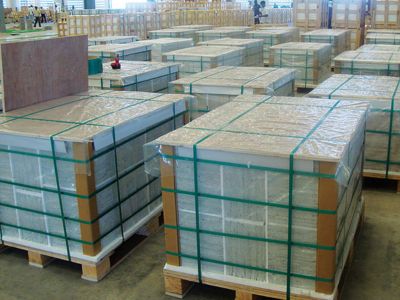
Sustainability doesn’t end with the production of eco-friendly practices in manufacturing, packaging is also a priority in the tile industry. Companies are opting for recyclable, compostable packaging materials to minimize waste. For example, some manufacturers are now using recycled cardboard or biodegradable materials for tile packaging instead of plastic.
This reduces the amount of waste that ends up in landfills and encourages a more sustainable lifecycle for tile products. By adopting eco-friendly packaging, tile manufacturers can ensure that their commitment to sustainability extends from the factory floor to the consumer’s doorstep.
10. Digital Printing Technology
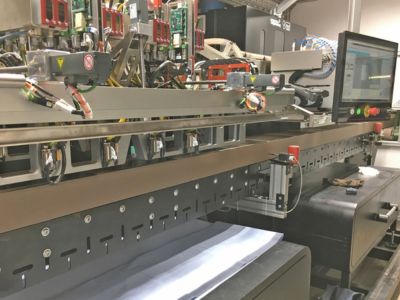
Digital printing technology in tile manufacturing also contributes to sustainability. Traditional tile decoration methods can be resource-intensive and generate significant waste. Digital printing allows for the precise application of designs. It reduces the need for excess dyes, glazes, and water. This technology minimizes waste production and results in lower energy consumption.
For example, companies like Porcelanosa use digital printing to create high-quality, realistic patterns on tiles that mimic natural stone, wood, or concrete without the environmental cost associated with quarrying or deforestation. The process is highly efficient and allows for custom designs with minimal material waste. Thus it serves both sustainability and aesthetic benefits.
11. Innovative Thermal Insulation Tiles

The tile industry is also innovating with tiles that provide thermal insulation that helps buildings reduce their energy consumption. These tiles are designed to reflect heat and maintain cooler temperatures in hot climates, or retain heat in colder climates.
Thus it is able to reduce the need for excessive air conditioning or heating. Companies like Mosa have developed ceramic tiles with excellent thermal properties that contribute to energy efficiency in buildings.
12. Partnership For Sustainable Development
Many tile manufacturers are partnering with environmental organizations, certification bodies, and sustainability experts to enhance their green credentials. These collaborations focus on sustainable development, setting industry standards, and achieving certifications like LEED (Leadership in Energy and Environmental Design) or Cradle to Cradle.
The Tile Council of North America (TCNA) works with manufacturers to promote sustainable practices and certify eco-friendly products. It is one of the greatest examples of collaboration for sustainable growth.
Collaborating with external organizations and stakeholders, the tile industry ensures continuous improvement and transparency. It helps them adhere to the highest sustainability standards. This also helps manufacturers stay ahead of regulations and market demands and makes them leaders in sustainable building materials.
Conclusion
These initiatives show the tile industry’s commitment to a more sustainable future. The practices make it easier for consumers to choose eco-friendly products without compromising on quality or style.

